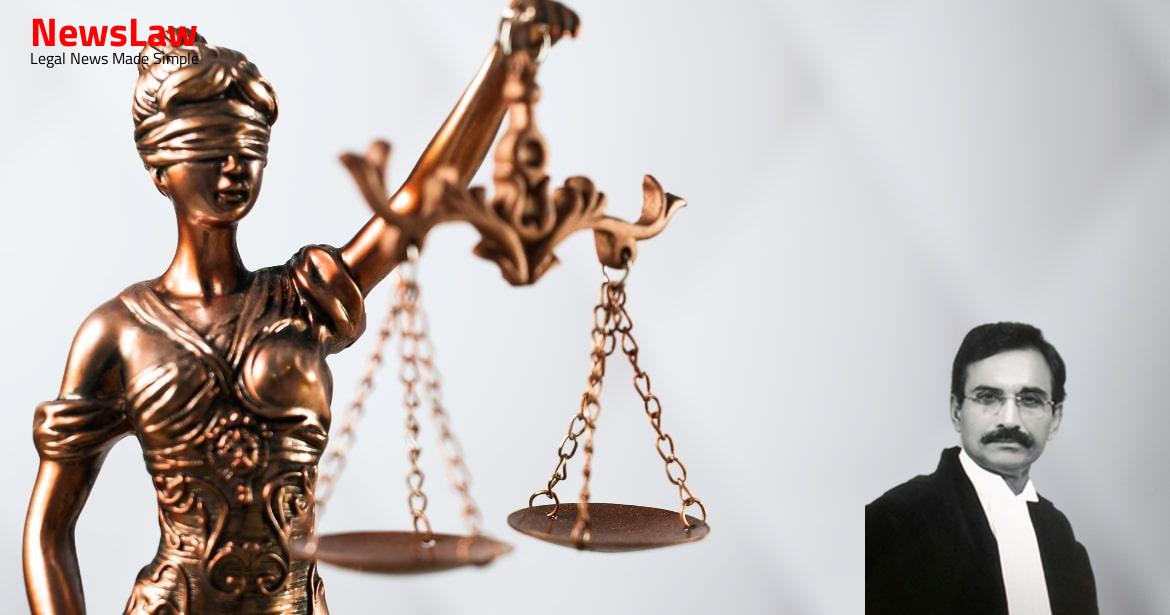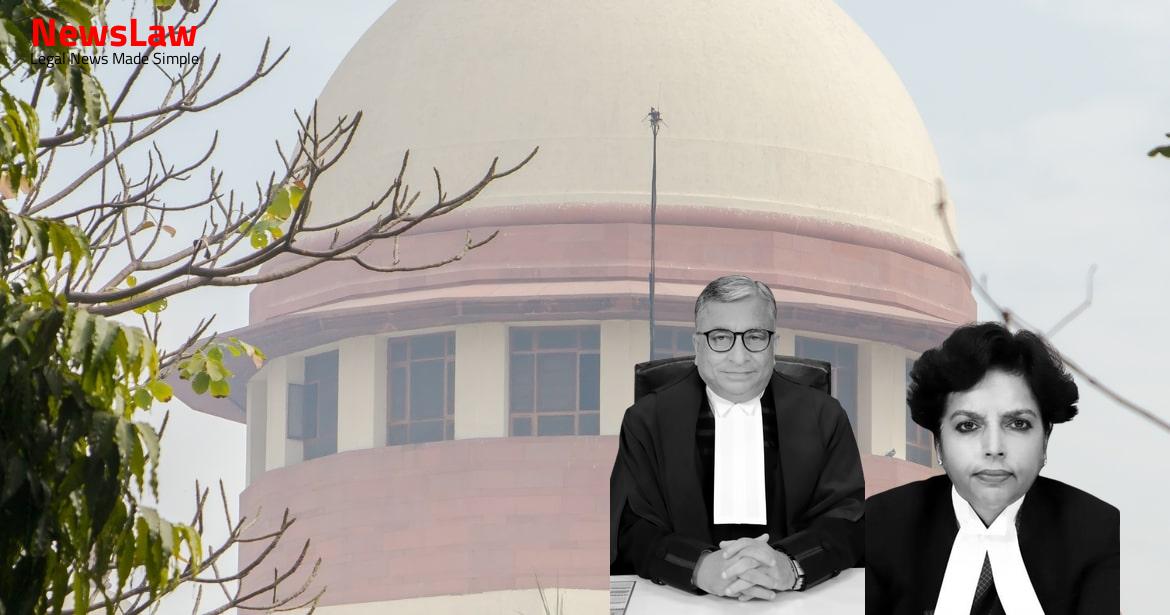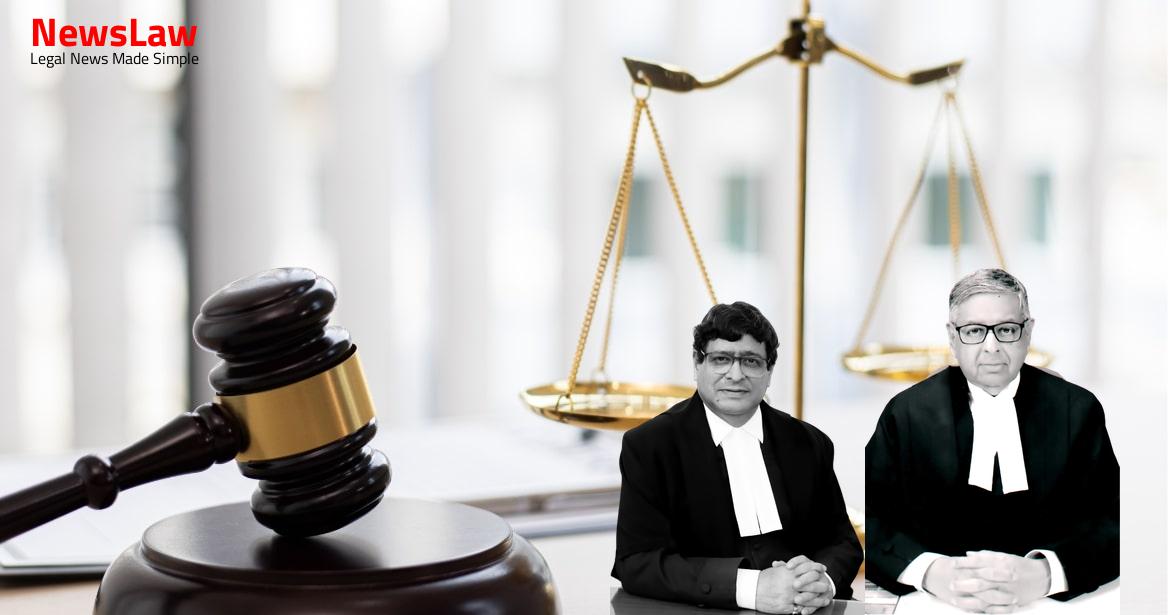Delve into the judicial scrutiny of confessional statements in a military misconduct case, where the court carefully examines the voluntariness and reliability of the confession. The case sheds light on the importance of corroborative evidence and the limitations of extra-judicial confessions in legal proceedings. Follow this legal analysis to understand how courts navigate the complexities of military law and evidentiary standards.
Facts
- The respondent-officer was involved in malpractices during various recruitment rallies in different locations.
- He was asked to help in clearing candidates by declaring them medically fit in exchange for gratifications.
- The respondent-officer confessed about his involvement in the malpractices to P.W.1-Col. Anil Singh Rathore.
- He received monetary rewards from other officers for helping candidates in recruitment.
- Several charges were brought against the respondent-officer regarding obtaining gratifications in exchange for official acts.
- The General Court Martial found the respondent guilty of some charges and not guilty of others.
- There were multiple recruitment rallies where malpractices were reported, leading to an investigation and arrests.
- A FIR was registered regarding malpractices in the recruitment process.
- The GCM sentenced the respondent-officer to be cashiered from service and to suffer rigorous imprisonment for one year.
- The GOC confirmed the findings and sentence of the GCM but remitted the unexpired portion of the sentence of rigorous imprisonment.
- The respondent-officer appealed to the AFT through O.A. (Appeal) No.2 of 2014.
- The AFT sentenced the respondent-officer to forfeiture of seniority of rank of Major and severe reprimand.
Also Read: Presumption of Genuine Endorsements in Cheque Case
Arguments
- Scope of interference by the Armed Forces Tribunal under Section 15 of the AFT Act is limited to three grounds
- The confessional statement made by the respondent-officer was considered voluntary
- Reference made to the judgment in the case of Union of India and others vs Sandeep Kumar and others regarding the confessional statement
- The respondent-officer was not an accused when making the confessional statement
- The learned AFT erred in relying on Article 20(3) of the Constitution of India
- Reference to the judgment of The State of Bombay vs Kathi Kalu Oghad and others on this matter
- The respondent-officer was found to have engaged in financial misconduct by the learned AFT
- The punishment of cashiering from service for misconduct was deemed unjust by the petitioner
- Reference made to the judgment in the case of Chandra Kumar Chopra vs Union of India and others on sustaining punishment for financial misconduct
- No person was found medically declared fit when actually unfit during recruitment tests.
- Evidence shows actual tests were conducted by independent members with the medical team assisting.
- Rs.65,000 allegedly received from P.W.8 was a loan repayment for purchasing land.
- News about respondent-officer’s involvement in an FIR was published in newspapers.
- Confessional statement by the respondent-officer was deemed not voluntary by the learned AFT.
- Possibility of coercion to confess due to a recruitment scam by higher officials was noted.
- Extra-judicial confession is considered weak evidence without corroboration.
- Evidence does not establish that the respondent-officer received any amount from touts for clearing candidates.
- Rs.20,000 deposited by P.W.10 was returned by the respondent-officer as he was in need for travel.
- Evidence shows the return of the Rs.20,000 is confirmed by P.W.12.
Also Read: Medical Negligence and Compensation: A Landmark Decision
Analysis
- The Court reiterates that for an extra-judicial confession to be a basis for conviction, it must be voluntary, trustworthy, and reliable.
- The AFT has the authority to review evidence and determine if court martial findings are legally unsustainable, involve a wrong decision on a question of law, or result in a miscarriage of justice.
- Judicial interference is justified only if the AFT’s finding is deemed perverse or impossible.
- The confession in this case lacked corroboration and was considered weak evidence.
- The AFT can overturn court martial decisions if legal irregularities or wrongful decisions on points of law are identified.
- In cases where no miscarriage of justice is likely, the AFT may dismiss appeals against court martial convictions.
- Extra-judicial confession is a weak evidence by itself
- Reliance should be placed on the judgment of the Eleven-judge Bench in the case of The State of Bombay vs Kathi Kalu Oghad and others
- The confession should be made voluntarily and should be truthful
- The part of the order convicting the respondent-officer for the offence under Section 63 of the Army Act is not sustainable.
- The respondent-officer proved how the amounts of Rs.20,000/- and Rs.65,000/- were deposited in his account and his father-in-law’s account respectively.
Also Read: Remand of Writ Petition for Restoration and Decision on Merits
Decision
- Appellant Major R. Metri No.08585N to be reinstated with continuity of service
- Major R. Metri No.08585N will not be entitled to back-wages for the period of unemployment
- Acquitted of all charges
- Criminal Appeal No. 2196 of 2017 filed on behalf of Union of India and others dismissed
- Criminal Appeal Nos. 537-538 of 2018 filed on behalf of Major R. Metri No.08585N allowed
- Impugned judgment and order dated 2 March, 2017, set aside
Case Title: UNION OF INDIA Vs. MAJOR R. METRI NO. MR 08585N (2022 INSC 384)
Case Number: Crl.A. No.-002196 / 2017



